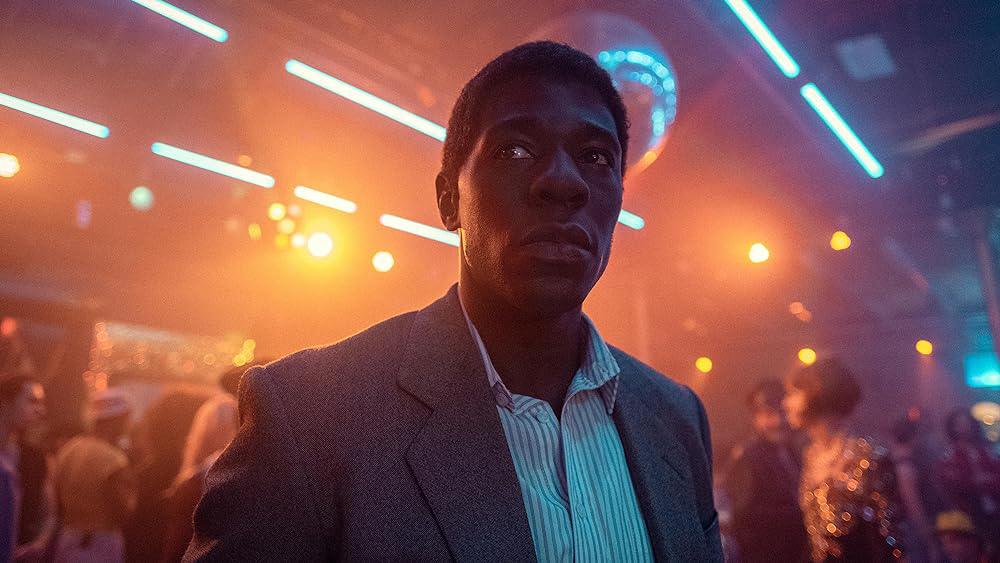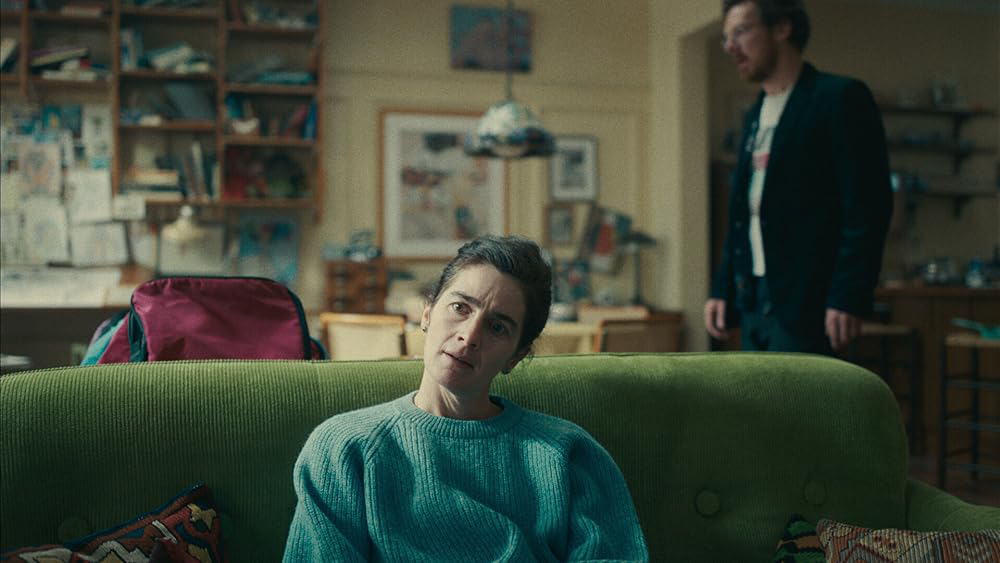Limited series are becoming a new favorite medium for streaming. They last between six and eight hours and feel like an extended film. Such length allows the story to carry a deep emotional complexity. This complexity has attracted prominent actors to this limited series format. Netflix has championed this medium with great limited series that include Beef (an Emmy-winning series), Ripley, and Maniac (to name a few). Now, Netflix has another new limited series to join those impressive ranks. Eric, starring Benedict Cumberbatch, offers another engaging mystery story.
The story of Netflix’s Eric
Eric follows Vincent Anderson (Benedict Cumberbatch), a puppeteer for the Sesame Street–like television show Good Day, Sunshine! In 1985, New York. When Vincent’s son Edgar (newcomer Ivan Morris Howe) goes missing, Vincent goes down a path of darkness trying to find his son. That mission includes bringing his son’s creation, a new puppet named Eric, to Good Day, Sunshine!. His descent into madness includes ripple effects on those around him. This includes his wife Cassie (Gaby Hoffman) and the lead detective on the case, Michael Ledroit (McKinley Belcher III). Told over six episodes, Eric tackles a wide range of emotional material.

Eric’s strength resides in its two central performances. Benedict Cumberbatch delivers career-best work in one of the show’s titular roles. A character like Vincent never has to become “likable” to connect with audiences. Instead, to make him engaging, Cumberbatch has to make viewers understand him. Over the six episodes, he has impressively succeeded in that task. That includes playing the dual roles of Vincent and the voice of the creature Eric itself. While playing this emotionally damaged man, Eric must be the angel and devil on Vincent’s shoulder. It forces Cumberbatch to imply a duality that makes for an incredibly compelling journey.
McKinley Belcher III’s Steely Determination Steels the Show
Benedict Cumberbatch’s performance is not the only excellent one in the series. McKinley Belcher III delivers another scene-stealing turn. In theory, his character is nothing more than the standard “police detective.” Instead, Detective Ledroit comes with his own struggles and complexities, which include things beyond the mere disappearance of Edgar Anderson. To say anything else would spoil the subtlety he accomplishes in the role. Belcher III has a steely determination and sympathy to a nuanced degree. His eyes say so much, even with the most minimal dialogue.

That includes a surprisingly deep emotionality that has to be delivered in an understated way. Belcher III wisely understands this, luring the viewer with his determination to solve the case. He gives the character an additional layer of humanity as the series progresses. Such humanity makes him more than an archetype. Instead, he feels like a natural person within a heightened reality. Such a compelling balance of lead characters keeps the series at quite an engaging pace. While so effective, it significantly lessens the impact of other supporting performances.
Surrounding Cumberbatch and Belcher III is a cavalcade of supporting talent, including Dan Fogler, Gaby Hoffman, and Clarke Peters, to name a few. Each of these actors is given relatively effective moments. Unlike the character of Detective Ledroit, these make the supporting characters feel entirely archetypal. That is no fault to the talented supporting cast surrounding our leads. The problem is that much of that drama is significantly less engaging than Vincent and Detective Ledroit’s. Each of their stories remains so compelling that time spent away from them delivers a lesser impact amongst those supporting performances. That includes several subplots not directly involved with Edgar’s disappearance.

Eric has an undercurrent of political, racial, and classist tensions throughout. It’s the sort of plotting that rings eerily true to the times in 1980s New York. Those real-life issues give Eric some incredibly effective moments. It’s an ambitious subtext the series hopes to discuss, delivering middling results in the process. The problem with those themes and ideas is that they simply are not fleshed out enough. That could make some feel underwhelmed by the time the credits roll.
Cumberbatch’s Skill Holds Together the Thriller
Those ideas deliver a finished product that wants its audiences to ponder specific topics. These things can make audiences continue to think about the series long after the credits roll. Besides the reduced supporting performances, the series’ final messages feel simplistic. Such simplicity makes the series end with more of a whimper than a bang. Cumberbatch delivers a realistically dark and emotional groundedness that holds it together. It’s that emotional satisfaction that can be enough for some. Others may feel slighted and underwhelmed with the results and resolutions that aren’t complex.
Eric delivers on creating an engaging and often very entertaining thriller. Told over six episodes, the series crafts two compelling central characters. Benedict Cumberbatch provides one of his best performances as the mean-spirited and often unlikable Vincent. While a genius in his craft, he can barely keep a relationship with those around him. Cumberbatch amply conveys this, keeping viewers in this journey without forcing us to like him. On the flip side, McKinley Belcher III delivers a breakout performance. An actor who can provide subtlety is a difficult feat. From his first scene, you are immediately sucked into his journey, which is much deeper than just solving a case. Qualms aside, those two performances alone make Eric worth your time. In a limited series format, the results deliver something entertaining from start to finish.
Eric is now streaming on Netflix.
You might also like…
‘The Acolyte’ Review: A Refreshing Star Wars Conspiracy Thriller


